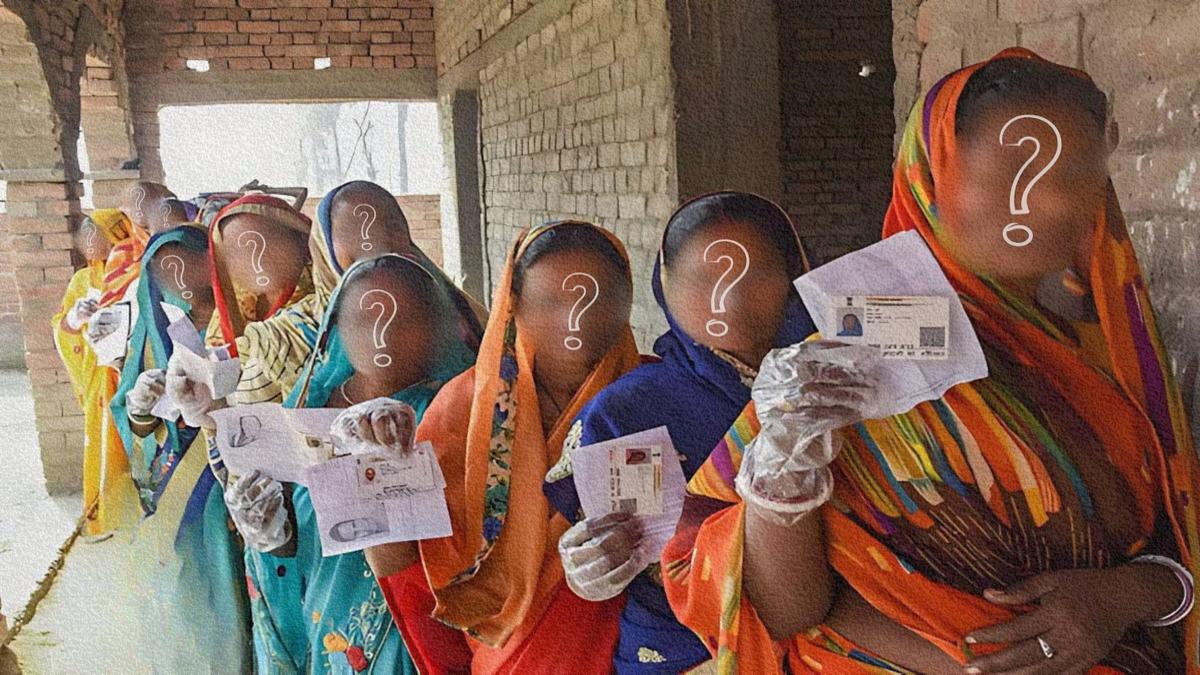Article Body
Patna, Bihar — On a humid July afternoon in Nalanda, an old man named Rajiv Prasad walked to his usual polling booth. “Yahan toh 1991 se vote de rahe hain,” he said, clutching his faded voter ID. But when he reached the electoral list pasted outside the booth, his name was gone. His neighbors’ names were gone. So were dozens more.
Multiply that by lakhs, and you’ll understand why Bihar is in political turmoil this week.
According to official data released by the Election Commission of India (ECI), nearly 35.7 lakh voters—about 4.5% of Bihar’s total 7.9 crore electorate—have gone missing from the revised rolls. The revelation came during the 2024-25 pre-election electoral roll revision, triggering sharp reactions from all major political parties and civil society groups.
“Such an anomaly at this scale raises serious red flags ahead of the 2025 Bihar Assembly elections,” said Prof. Meena Raghavan, a political analyst at Jawaharlal Nehru University.
Why does this matter now in 2025?
Because voter trust is democracy’s oxygen. With elections just months away and the ECI racing to finalize updated voter lists, the disappearance of 35.7 lakh names could affect constituency outcomes, trigger litigation, and potentially disenfranchise lakhs of eligible voters.
In a state where electoral margins are often razor-thin, this scale of deletion isn’t just a clerical issue—it’s a democratic emergency.
What’s behind the voter disappearance?
The ECI attributes the missing voters to its “door-to-door verification drive”, carried out with booth-level officers (BLOs) across the state earlier this year. According to an internal memo reviewed by this reporter, BLOs marked voters as "missing" if:
-
The individual wasn’t found at the listed address.
-
The voter ID had invalid details.
-
There were suspected cases of duplication or migration.
But the bigger controversy? The inclusion of non-citizens—reportedly from Nepal, Bangladesh, and Myanmar—on voter lists, as alleged by opposition leaders.
“Is this incompetence or a conspiracy?” asked RJD leader Tejashwi Yadav in a fiery press conference. “First you delete citizens, then you quietly allow foreigners?”
Are foreigners really on the voter list?
That’s what triggered the political storm. An unnamed source inside the Bihar Chief Electoral Office confirmed to this reporter that the list shared with political parties includes names flagged for potential foreign origins—mostly Nepali and Bangladeshi nationals living in border districts.
This aligns with trends flagged by security agencies in the India-Nepal border regions like Araria and Sitamarhi, where the population is mobile, documentation thin, and verification difficult.
But this revelation also exposes a systemic flaw: India's voter databases rely heavily on self-declaration and BLO discretion, with limited digital verification against Aadhaar or other biometrics.
Why now? The 2024–2025 backdrop
This news breaks just as India enters a hyper-political cycle:
-
Bihar Assembly Elections are scheduled for late 2025.
-
Delimitation exercises are underway nationwide, affecting seat boundaries.
-
Caste-based surveys and reservations dominate state politics.
-
Digital voter ID reforms are being piloted in select districts.
Put together, this creates fertile ground for electoral friction—and the potential to tilt outcomes through database manipulation, whether intentional or accidental.
PAA Q1: What is the EC doing about the missing voters?
The Election Commission has issued a 14-day review period, during which political parties can flag wrongful deletions. Additionally, individuals can file Form 6 or 8 online or via BLOs to re-enroll.
However, the success of this process is limited by:
-
Poor digital literacy in rural Bihar.
-
Delays in BLO visits and verification.
-
Lack of public awareness about the deletions.
“People are still unaware their names are missing,” said Purnia-based activist Shalini Verma. “They’ll only realize on voting day.”
PAA Q2: Why are voter lists often inaccurate in Bihar?
Bihar has one of the highest migration rates in India. According to a 2023 report by the Centre for Migration Studies, over 28% of Bihar’s rural population migrates seasonally for work. These internal migrants often:
-
Fail to update voter addresses.
-
Use documents with inconsistent data.
-
Are overlooked by BLOs unfamiliar with their migration patterns.
This makes voter roll maintenance uniquely challenging in the state.
PAA Q3: Will this affect the 2025 Bihar elections?
Absolutely. If the data remains flawed:
-
Lakhs may be disenfranchised.
-
Litigation and EC complaints will surge.
-
Allegations of vote rigging may overshadow the campaign.
The ECI must now balance speed with accuracy—rushing to finalize rolls by August while restoring voter trust.
Expert Insight: What happens next?
“The EC must publish a public dashboard of deletions and restorations,” says Dr. Anil Deshmukh, former advisor to the Law Ministry on electoral reforms. “Digital accountability is the only way to maintain credibility.”
He adds that the linking of Aadhaar with voter IDs, while controversial, could prevent such massive data leakage—but only if privacy safeguards are strictly enforced.
What should voters do now?
✅ Check your name on the voter list today at https://voterportal.eci.gov.in
✅ File for re-inclusion if your name is missing
✅ Demand BLO visit or verification receipt
💡 Key takeaway: If you don’t check your name now, you may lose your right to vote in 2025.


Comments